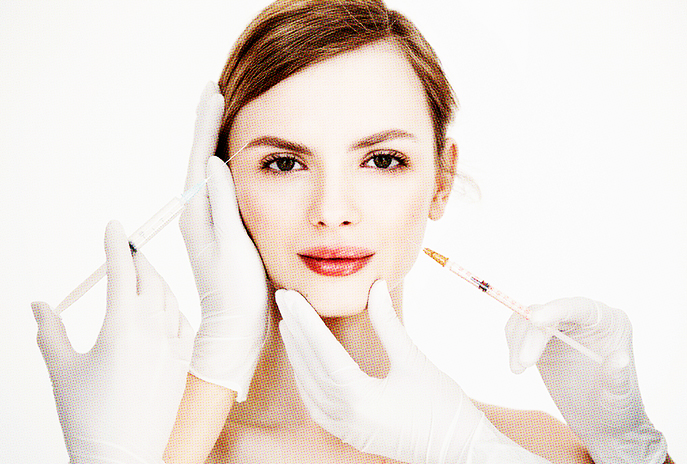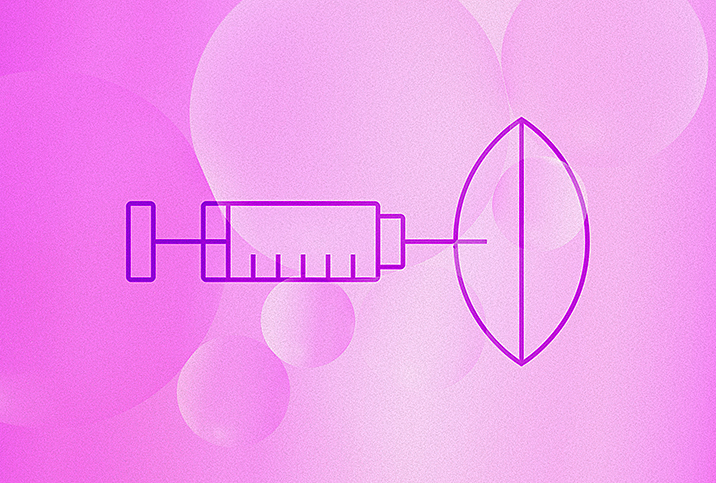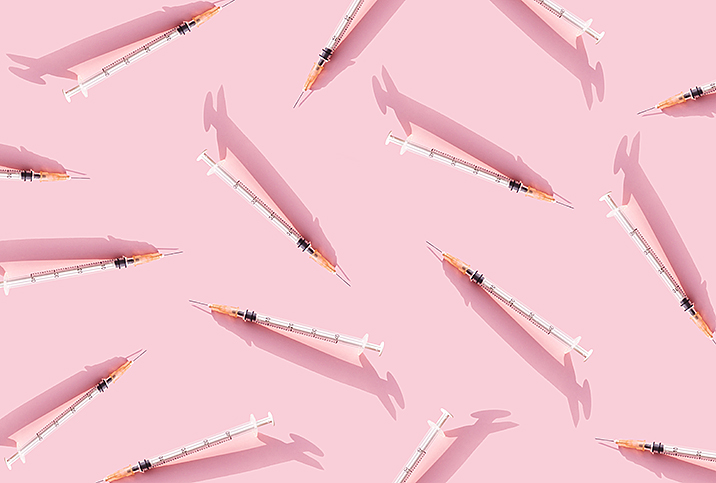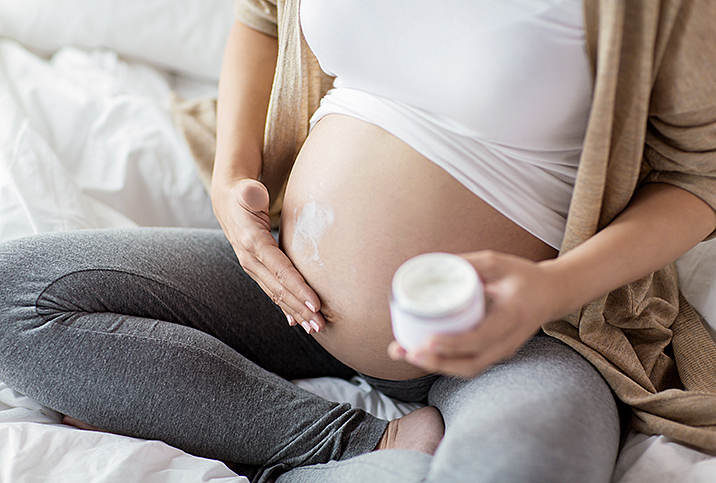Can I Get Botox While Pregnant?

Botox injections are an increasingly popular procedure that can be used for cosmetic purposes, as well as to treat certain health conditions such as migraines and excessive sweating (hyperhidrosis).
However, there is limited data on the effects of getting Botox injections while pregnant. We looked at the existing research and spoke to experts on their opinions about getting Botox while pregnant.
Botox is used for a lot more than cosmetic reasons
Botox injections contain a toxin called onabotulinumtoxinA, which temporarily paralyzes a muscle. The primary cosmetic use of Botox is to reduce the appearance of facial wrinkles and make patients look more "lifted."
The injections work by blocking certain chemical signals from the nerves that cause muscles to contract. Although Botox is more commonly used for cosmetic purposes, it can also be used to treat several other conditions, such as:
- Lazy eye. This occurs due to an imbalance in the muscles responsible for positioning the eye.
- Cervical dystonia. A painful condition in which the neck muscles contract involuntarily, causing uncomfortable twisting and turning of the head.
- Hyperhidrosis. Excessive sweating which occurs without reason or movement.
- Chronic migraines. Some studies show that Botox injections are incredibly effective in the treatment of chronic migraines. One study found 65 percent of participants noticed improvements in their migraines after three courses of injections.
- Bladder dysfunction. Botox injections can help reduce urinary incontinence caused by overactive bladder.
- Vaginismus. Botox can be injected into the pelvic floor muscles to relax the area and alleviate the pain and spasms associated with this condition.
For women who get Botox for medical reasons, stopping due to pregnancy may create health complications. Sanjay Pandey, M.B.B.S., head of andrology and reconstructive urology at Kokilaben Dhirubhai Ambani Hospital in Mumbai, India, said he regularly uses Botox to aid people who suffer from urinary incontinence. But he noted that further research needs to be done on the effects of Botox on pregnancy before doctors can safely recommend the procedure to pregnant women.
"Not many large-scale studies have been conducted on the safety of using Botox in pregnant and lactating women. Research is definitely needed here, as incontinence is an issue that plagues more women than men at all age groups," Pandey said.
Botox and pregnancy
The little research on Botox for pregnant people may be due, in part, to the misunderstandings around Botox.
"There's very limited research and data about the effects of getting Botox when pregnant and the impact it can have on the mother and child," said Nina Prisk, an aesthetics nurse and injectable expert in London. "I think this is, in part, due to the fact that Botox is still regarded by many people as purely an aesthetic treatment. However, it can also be used to treat many medical conditions from migraines to hyperhidrosis."
To be clear, there is also nothing wrong with getting Botox for purely aesthetic reasons.
"I have seen firsthand the positive impact it can have on a person's confidence and self-esteem, which should not be underestimated. So I think that there needs to be more research into getting Botox whilst pregnant," Prisk added.
"There are no true [contraindications] of having Botox in pregnancy," said Hina Pathak Sra, M.B.B.S., a consultant obstetrician and aesthetic gynecologist at Cosmebeaute in London. "Botulinum toxin does not enter the bloodstream or the digestive system. Hence, it does not cross the placenta and, hence, cannot harm the fetus."
Botulinum toxin is also unlikely to be passed through breast milk.
"Having said that, most health professionals will advise against it whilst pregnant or breastfeeding," Sra said.
What does the research say?
While there is limited research on the use of Botox while pregnant, a few studies have been conducted.
A 2021 review conducted by the American Academy of Facial Plastic and Reconstructive Surgery followed three patients who received Botox for medical reasons during pregnancy. Both the mothers and fetuses were observed throughout the pregnancy, and the clinical data were available for the children for three to five years after birth. Findings from each individual case showed no adverse effects in either the mother or child during the pregnancy and after.
While the researchers concluded that Botox appeared to be safe to use during pregnancy, further investigation is needed before providing a definitive answer about the safety of the injections for pregnant women.
A 2020 study published in the Journal of Headache and Pain followed the outcomes of 45 pregnant patients who had received Botox injections for chronic migraines for nine years. The patients were all advised of the risks that could occur if they decided to continue with these injections throughout their pregnancy, and after receiving this advice, 32 patients continued with the injections.
Of these 32 patients, one had a miscarriage that could not be definitively linked to the Botox injections, and the other 31 had full-term pregnancies with healthy births and babies with no congenital malformations.
Purely cosmetic? Skip the injections for now
"Overall, [Botox] is seen as safe when administrated by a doctor or practitioner," said Ross Perry, M.B.B.S., general practitioner and medical director of Cosmedics Skin Clinics in London. "But with any injectable, we don't have the research to say whether there are zero risks associated with it and, therefore, it isn't advised to have as a cosmetic treatment when pregnant."
The main potential risk of getting Botox while pregnant is that it could cause birth defects, Perry explained.
"Botulism…is incredibly rare but can happen if Botox spreads beyond the area you are treating and can end up being incredibly dangerous," Perry said.
Botulism attacks the nerves and can cause difficulty breathing, paralysis and even death.
If a pregnant woman is getting injections for cosmetic reasons only, it's best to take a break.
"For a lot of women, when pregnant, they enter the 'pregnancy bloom' period when skin looks fresh, clear and glowing," Perry said. "And for the sake of nine months, more if you breastfeed, it's not a long time to go without."


















